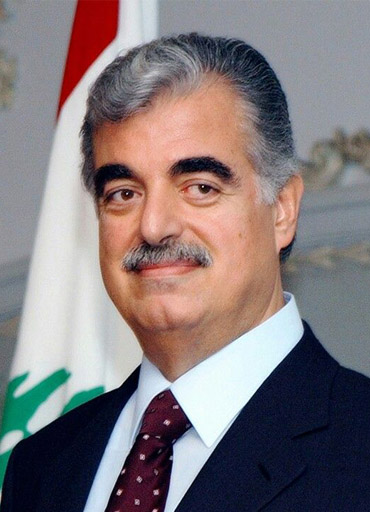Our Story
- Home
- Our Story
Context of Inception
The years of war and turmoil in Lebanon between 1975 and 1990 had a destructive impact on the Lebanese economy and society at the political, administrative, educational, and security levels as well as on urban infrastructure. Lebanon was in economic isolation; the cost of total direct and indirect losses was estimated at 100 billion USD. Lebanese human capital was affected by war dynamics and repercussions; with 150,000 dead, 300,000 wounded or disabled, 17,000 missing, 1 million displaced, and 600,000 seeking refuge, an exceptional intervention was needed.

The Hariri Choice
In 1979, martyr H.E. Rafic Hariri launched an unprecedented national rescue mission aimed at ending the war and saving Lebanon from isolation and intolerance and responding to the collapse and destruction.The Hariri Foundation’s inception in 1979 was inspired by the UNESCO mandate: “It is in the minds of men and women that the defenses of peace must be constructed.” Its first mission was to combat the repercussions of the Lebanese civil war on social values and societal segregation and stigmatization. This exceptional mission came through its first educational program, reaching out across war-afflicted Lebanese regions, providing academic scholarships for nearly 36,000 students to pursue their undergraduate and graduate studies in Lebanese and world-renowned universities and institutes.
This educational program was paralleled with a national mission for reconstruction and state-building through the empowerment of institutions and individuals. HF continued to invest in knowledge and education as means to prevent young people’s engagement in war and to mobilize citizens and institutions engagement in the process of national state-building. The Hariri Choice is widely regarded as a pioneering social and developmental framework in the Arab world for, designed to reorganize post-conflict societies and reinforce public order, empowering the whole of society to contribute meaningfully to sustainable national development.
45 Years of Sustainable Human Development
The Hariri Foundation, presided by H.E. Bahia Hariri, has ever since expanded its scope of work, shifting towards a more diversified portfolio of interventions aimed at national state-building and sustainable human development. Over the course of more than four decades, the foundation has advanced its approach and developed its programs and services to address national and global transformations. It has become a lead advocate of sustainable human development, expanding its developmental role to mainstream best practices of sustainability and resilience across future generations. Well into its fifth decade, HF has effectively localized ever-transforming global frameworks and scientific modalities to address the needs and potentials of Lebanese sectoral societies and local communities. The foundation has implemented more than 200 projects and activated more than 30 dedicated development centers across Lebanon. The foundation has collaborated with hundreds of international and local organizations and networks for the achievement of Agenda 21, the Millennium Development Goals (MDGs), the Sustainable Development Goals (SDGs), the UN Plan of Action for Preventing Violent Extremism (PVE), as well as other global and national integrated and sectoral plans.